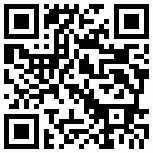
 QR Code
QR Code

Merkel: Better to have Iran deal even if it is imperfect
23 Apr 2018 13:32
Islam Times - German Chancellor Angela Merkel has voiced her support for the 2015 Iran nuclear deal, known as the Joint Comprehensive Plan of Action (JCPOA), amid US threats to scrap it.
“We believe it’s better to have this agreement, even if it is not perfect, than to have no agreement,” Merkel said in an interview with Israel's Channel 10 television broadcast Sunday.
Israeli Prime Minister Benjamin Netanyahu, whose regime is believed to possess the only nuclear arsenal in the Middle East, has repeatedly made unfounded accusations that Iran was seeking to develop nuclear weapons.
Merkel’s remarks come just days before she meets US President Donald Trump, an ardent opponent of the deal, in Washington.
Trump has repeatedly described the JCPOA, which was negotiated under his predecessor, Barack Obama, as “the worst and most one-sided transaction Washington has ever entered into” and threatened to tear it up.
In January, he decided to stick with the JCPOA, but gave the European signatories a May 12 deadline to “fix the terrible flaws” of the accord or he would withdraw Washington from the deal.
Other parties to the agreement, namely Russia, China, Britain, Germany and France, have all criticized Trump’s hostile views, saying the deal is sound and has proven to be functioning.
Under the deal, which entered into force in January 2016, Iran agreed to limit parts of its peaceful nuclear program in exchange for the removal of all nuclear-related sanctions.
Merkel said in the interview that "Germany will watch very closely to ensure that this agreement will be fulfilled.”
Zarif warns US of consequences
Iran’s Foreign Minister Mohammad Javad Zarif said Trump has already tried for fifteen months to sabotage the accord by disrupting normal business with Iran.
“If they [the US] want to kill the deal, they have that option, but they have to face the consequences,” the New Yorker magazine quoted Zarif as saying. “It’s dangerous to be arrogant, very dangerous.”
Zarif is spending six days in New York, technically on UN business, but is also speaking with members of Congress, the US foreign policy community, and the media.
“It’s important for Iran to receive the benefits of the agreement,” he said, stating that Tehran has three broad choices if Trump opts out.
The first choice is that Iran could quit the deal, terminate compliance, and resume—even increase—its uranium enrichment.
“America never should have feared Iran producing a nuclear bomb,” Zarif said. “But we will pursue vigorously our nuclear enrichment.”
Iran’s second option is to use a mechanism in the deal, which allows any party to file a formal complaint with a commission established to adjudicate violations. “The objective of the process is to bring the United States into compliance,” Iran’s top diplomat said.
According to the New Yorker, there is a European effort to achieve that objective and to save the accord, which reportedly reached its final stages, with agreement on most issues except the so-called sunset clauses.
But Zarif said any compromise that adds new conditions or interpretations was a non-starter.
“We don’t condone it, and we don’t believe it’s useful or fruitful or conducive to a better implementation of the [deal], and they know that to be our position,” Zarif said.
“The only scenario that we can deal with is for the Europeans to talk to the Trump Administration to start, once and for all, complying with the deal,” he added.
The third option, Zarif said, is the most drastic one as Iran could decide to withdraw from the nuclear Non-Proliferation Treaty or NPT.
The treaty was ratified in 1970 and extended indefinitely in 1995. Under the treaty, the five permanent members of the United Nations Security Council — China, France, Russia, the United States and the United Kingdom — were acknowledged as nuclear powers.
Countries joining the treaty have agreed not to pursue nuclear weapons development, although they are allowed to use nuclear technology for non-military purposes.
Israel, India and Pakistan have never signed the treaty while North Korea signed it but withdrew in 2003 and has tested nuclear devices since then. China, India, and Pakistan are all pursuing new ballistic missile, cruise missile, and sea-based nuclear delivery systems.
Zarif said there is still intense debate in Tehran about which option Iran should choose. “Iran is not a monolith,” he said.
But the Iranian foreign minister noted that the public’s mood had shifted over the past year and distrust of the West was running deep.
“The United States has not only failed to implement its side but is even asking for more,” he said.
“That’s a very dangerous message to send to the people of Iran, but also to the people of the world—that you should never come to an agreement with the United States, because, at the end of the day, the operating principle for the United States is ‘what’s mine is mine, what’s yours is negotiable.’ ”
UN urges all parties to preserve Iran accord
On Monday the senior UN disarmament official called on parties to the Iran nuclear agreement not to abandon it.
"We hope that all of its participants remain fully committed to its implementation and long-term preservation," UN High Representative for Disarmament Affairs Izumi Nakamitsu said at a UN nuclear non-proliferation conference.
Story Code: 720002